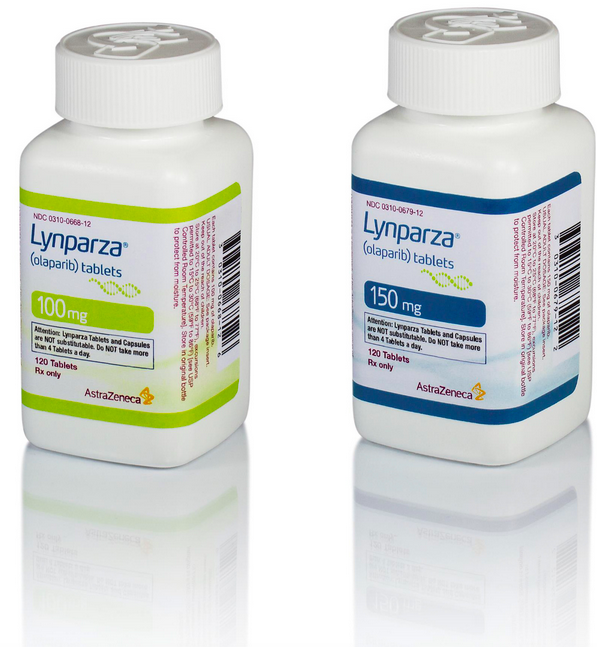Lynparza (olaparib) vs Afinitor (everolimus)
Lynparza (olaparib) vs Afinitor (everolimus)
When comparing Lynparza (olaparib) with Afinitor (everolimus), it is important to note that they are used to treat different types of cancers and work through distinct mechanisms. Lynparza is a PARP inhibitor indicated primarily for certain types of breast, ovarian, pancreatic, and prostate cancers, particularly in patients with specific genetic mutations such as BRCA. Afinitor, on the other hand, is an mTOR inhibitor that is used for various cancers including advanced renal cell carcinoma, certain types of breast cancer, and neuroendocrine tumors, among others, but does not target genetic mutations specifically. Patients should consult with their healthcare provider to determine which medication is appropriate based on their specific type of cancer, genetic profile, and overall health condition.
Difference between Lynparza and Afinitor
| Metric | Lynparza (olaparib) | Afinitor (everolimus) |
|---|---|---|
| Generic name | Olaparib | Everolimus |
| Indications | Ovarian, breast, pancreatic, and prostate cancers with specific genetic mutations (BRCA, HRR) | Advanced hormone receptor-positive, HER2-negative breast cancer, advanced neuroendocrine tumors, renal cell carcinoma, subependymal giant cell astrocytoma (SEGA), tuberous sclerosis complex (TSC) |
| Mechanism of action | Poly (ADP-ribose) polymerase (PARP) inhibitor, which leads to DNA damage in cancer cells | mTOR inhibitor, which can prevent cancer cell growth and angiogenesis |
| Brand names | Lynparza | Afinitor, Afinitor Disperz |
| Administrative route | Oral | Oral |
| Side effects | Anemia, nausea, fatigue, vomiting, respiratory infections, blood count abnormalities | Mouth ulcers, infections, rash, fatigue, diarrhea, edema |
| Contraindications | Hypersensitivity to olaparib or any of the excipients, pregnancy, breastfeeding | Hypersensitivity to everolimus or other rapamycin derivatives, pregnancy, breastfeeding |
| Drug class | PARP inhibitor | mTOR inhibitor |
| Manufacturer | AstraZeneca and Merck & Co. (MSD outside the US and Canada) | Novartis |
Efficacy
Lynparza (Olaparib) Efficacy in Breast Cancer
Lynparza (olaparib) is a targeted therapy known as a PARP inhibitor, which has shown efficacy in the treatment of breast cancer, particularly in patients with a specific genetic profile. Its use is primarily focused on individuals who have inherited mutations in the BRCA1 or BRCA2 genes, which are linked to an increased risk of breast and ovarian cancers. Clinical trials have demonstrated that olaparib can significantly improve progression-free survival in patients with HER2-negative metastatic breast cancer who also carry BRCA mutations. This benefit is particularly notable as these patients have limited treatment options once they have progressed on standard therapies.
The efficacy of olaparib was highlighted in the OlympiAD trial, a phase III study that compared olaparib to standard chemotherapy in patients with HER2-negative metastatic breast cancer with a germline BRCA mutation. The results showed that olaparib significantly prolonged progression-free survival compared to chemotherapy. Furthermore, patients treated with olaparib experienced fewer severe side effects than those who received chemotherapy, suggesting a favorable safety profile in addition to its efficacy.
Afinitor (Everolimus) Efficacy in Breast Cancer
Afinitor (everolimus) is an mTOR inhibitor that has been studied for its efficacy in treating hormone receptor-positive, HER2-negative advanced breast cancer. This medication is often used in combination with exemestane, an aromatase inhibitor, after the failure of treatment with letrozole or anastrozole. Clinical trials have shown that the addition of everolimus to exemestane can significantly increase progression-free survival in this patient population. The BOLERO-2 clinical trial was pivotal in demonstrating the efficacy of everolimus when combined with exemestane, leading to its approval for this indication.
Despite the demonstrated benefits, the use of everolimus comes with a range of potential side effects, and its efficacy must be weighed against these considerations in clinical practice. The decision to use everolimus as part of a treatment regimen for breast cancer is typically made after careful evaluation of the individual patient's disease characteristics and previous treatment responses. It is important for patients to be monitored closely for adverse effects and for healthcare providers to manage these proactively to maintain the quality of life and optimize treatment outcomes.
Regulatory Agency Approvals
Lynparza
-
European Medical Agency (EMA), European Union

-
Food and Drug Administration (FDA), USA

-
Health Canada

-
Therapeutic Goods Administration (TGA), Australia

-
Medsafe (NZ)

Afinitor
-
European Medical Agency (EMA), European Union

-
Food and Drug Administration (FDA), USA

-
Health Canada

-
Pharmaceuticals and Medical Devices Agency (PMDA), Japan

-
Therapeutic Goods Administration (TGA), Australia

Access Lynparza or Afinitor today
If Lynparza or Afinitor are not approved or available in your country (e.g. due to supply issues), you can access them via Everyone.org.
How it works

Make an enquiry
Choose the medicine you want to buy, answer a couple of questions, and upload your prescription to speed things up. We’ll get back to you within 24 hours.


Make an enquiry
Choose the medicine you want to buy, answer a couple of questions, and upload your prescription to speed things up. We’ll get back to you within 24 hours.


Breeze through the paperwork
We'll guide you through the required documents for importing unapproved medicine, ensuring you have all the necessary information.


Get a personalized quote
We’ll prepare a quote for you, including medicine costs and any shipping, administrative, or import fees that may apply.


Receive your medicine
Accept the quote and we’ll handle the rest - sourcing and safely delivering your medicine.

Some text on this page has been automatically generated. Speak to your physician before you start a new treatment or medication.
Let's talk
If you have any questions, call us or send us a message through WhatsApp or email:
Contact us




